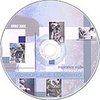Research Network 2: Workplace Learning
Network Coordinator:
Professor Dr Karen Evans,
University of London,
Institute of Education,
United Kingdom.
Email: karen.evans@UCL.AC.UK
Asian Network Coordinator:
Associate Professor Dr. Chompoonuh K. Permpoonwiat,
Srinakharinwirot University,
Thailand
Email: chompoonuh@g.swu.ac.th
European Network Coordinator:
Dr. Natasha Kersh,
University of London Institute of Education,
United Kingdom
Email: n.kersh@ucl.ac.uk
Please click here to view the profiles of the research network members.
Workplace Learning
This research network directs itself to the task of decoding working places as lifelong learning spaces across Asia and Europe: in brief, the CODE initiative. Workplaces exist not simply in companies and public services, but equally across a wide range of organisational and social contexts, including in the Third sector (non-profit-making NGOs, voluntary work, etc.) and in diverse forms of self-employment, including under irregular and precarious conditions. They offer very different kinds of learning opportunities – some are learning-friendly, others are less so; some provide structured work-related education and training for employees, whereas in others, learning is integrated into the flow of working processes.
Therefore, the ‘learning continuum’ between formal, non-formal and informal learning is a key framework for understanding how opportunities for professional and personal development at work are distributed, structured, experienced and used. Through exchange of information, workshop discussions and joint studies, the network is building up a shared body of knowledge that is driven forward by comparing and contrasting how workplace learning is provided, practised and understood in Asian and European countries.
Network members
The network was established in 2005 and meets at least once each year; its members currently come from 23 countries: Australia, Austria, Brunei, Canada, Cuba, Czech Republic, Denmark, Finland, France, Hungary, India, Ireland, Japan, Laos, Latvia, Lithuania, Malaysia, PR China, Thailand, Romania, Singapore, South Korea, and the United Kingdom.
Network Collaborative Projects
New Network Project 2024 – 2026: Enriching learning at work through the inclusive use of digital tenchologies and innovation.
RN2 has started a new collaborative project involving members and teams across the network.
The central question we are delving into is: How can the inclusive use of digital technologies and innovation enrich workplace learning and empower workers?
Previous network projects:
In 2009-10, the network conducted a comparative study: What do people interpret to be ‘voluntary’ and ‘compulsory’ with respect to workplace learning? What does their company/organisation offer in terms of formal and non-formal work-related learning? Which of these are ‘voluntary’ and which ‘compulsory’? How do objective opportunities and subjective perceptions influence employees’ motivation to learn at work and their satisfaction with the learning they have undertaken?
Between 2013 and 2016, network members have collaborated in a further research-based inquiry into workplaces as learning spaces. An aim has been to identify what makes workplaces conducive to learning in different cultures and organisational contexts. The book ‘Workplaces as Learning Spaces – Conceptual and Empirical Insights’ (released in December 2016) brings together contributions from Asian and European members.
ASEM RN2 Study 2020 – 2023
Resilience of skill ecosystems in Asian and European countries in pandemic times.
The skill ecosystem approach (cf. Buchanan et al. 2017) serves as an analytical perspective for identifying key developments in vocational education and training in Asian and European countries. This approach is particularly concerned with identifying the contexts and conditions that influence the development of qualification structures.
The innovative potential of the perspective and its difference to the mainstream lies in the fact that vocational qualifications are not only seen as an effect of the quality of a country’s education system, but in their mutual integration into an ‘ecosystem’ consisting of various elements as:
- Business settings and associated business models
- Institutional/policy frameworks
- Modes of engaging labour
- Structure of jobs
- Level of skills and systems for their formation.
These five context variables of the Skill ecosystem (SES) approach also form the basic framework for an RN online2 questionnaire, which is to be filled out several times in a certain period of time (approx. 2 years) by all participants. When we have collected all these materials in two years, reports on the development during the pandemic will be summarised and a joint comparative paper can be written, possibly clustered according to structural similarity of the countries/pandemic situation/vocational training systems/policies…- so that different strategies and effects can be identified. Our focus includes the initial training situation in the countries as well as formal and informal continuing education (workplace learning) and forms of school-to-work transitions.
Presentation of work-in-progress at the ASEM Global Lifelong Learning Week Conference 2022: https://bit.ly/3QNDObq






